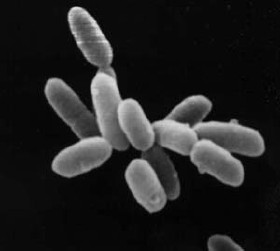Menu
-

Home
Homepage
KidzSearch
-

Games
Play Fun Mobile Games.
Games
-

KidzTube
Cool Videos for Kids.
Videos
-

KidzTalk
Talk About Anything
Q&A
-

KidzNet
Social Network for Kids
KidzNet
-

Pictures
Explore Popular Images.
Pics
-

Top Sites
Explore the Best Sites for Kids.
Websites
-

Music
Listen to Streaming Music for Kids.
Radio
-

Cool Facts
Facts for Kids.
Facts
-

Kids News
Read About Cool Topics.
News
-

Encyclopedia
Browse Over 200,000 Student Articles.
Wiki
-

Boolify
Learn How to Search with Boolify.
Boolify
-

Mobile Apps
Discover KidzSearch Apps
Apps


The Archaea (or Archea) are a group of single-celled organisms. The name comes from Greek αρχαία, "old ones". They are a major division of living organisms.
Archaea are tiny, simple organisms. They were originally discovered in extreme environments (extremophiles), but are now thought to be common to more average conditions. Many can survive at very high (over 80 °C) or very low temperatures, or highly salty, acidic or alkaline water. Some have been found in geysers, black smokers, oil wells, and hot vents in the deep ocean. Recent research has found ammonia-eating archaea in soil and seawater.
In the past they had been classed with bacteria as prokaryotes (or Kingdom Monera) and named archaebacteria, but this is a mistake. The Archaea have an independent evolutionary history and show many differences in their biochemistry from other forms of life. They are now classified as a separate domain in the three-domain system. In this system, the three distinct branches of evolutionary descent are the Archaea, Bacteria and Eukaryota.
- Related to archaea
- watch archaea videos on kidztube
- play archaea games
Post It On KidzTalk Homework Help
Report a search problem
home contact us settings advertise terms/privacyabout usteacher forum
View All
- COMPANY
- contact us
- settings
- advertise
- terms/privacy
- about us
- RESOURCES
- api services
- link to us
- add a site
- media/press
- education daily journal
- blocking websites
- teacher forum
- affiliate program
- make us your default search
- search help
- kidzsearch apps
- voice search
- LINKS
- home
- kidznet
- kidznet directory
- kidztalk
- kidztube
- games
- images
- top sites
- music
- facts
- news
- wiki
- boolify
- SOCIAL
desktop version
Powered by Google SafeSearch
Copyright 2005-2024 KidzSearch.com
